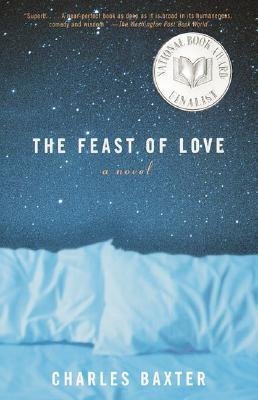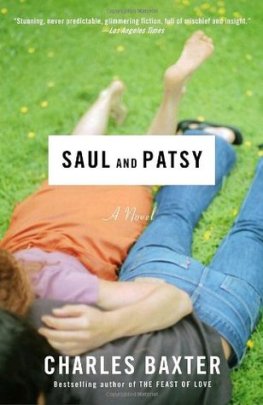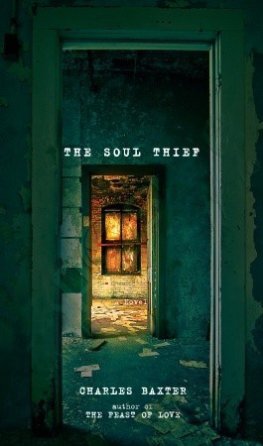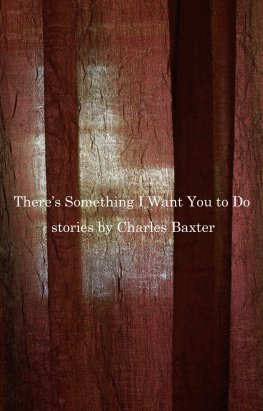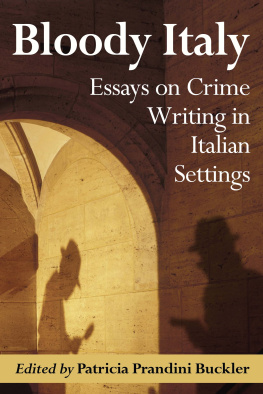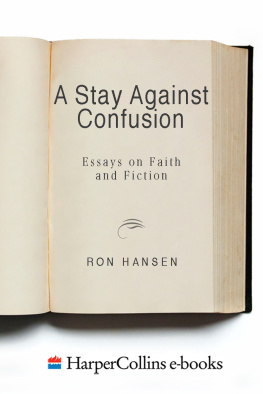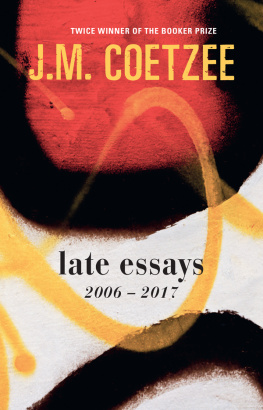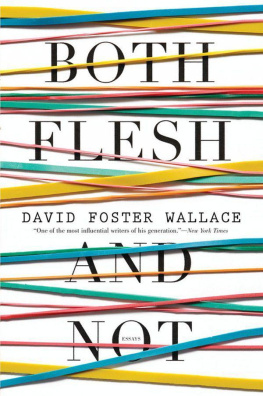WONDERLANDS
Essays on the Life of Literature
Charles Baxter
Graywolf Press
Copyright 2022 by Charles Baxter
Eight lines from the poem Two Poems about President Harding from Collected Poems 1971 by James Wright. Published by Wesleyan University Press. Used by permission.
Clothes on Hooks, Home Place , 1947; photograph by Wright Morris. Collection Center for Creative Photography. Copyright Estate of Wright Morris. Courtesy of the Center for Creative Photography.
Excerpt from The Teeth Mother Naked at Last copyright 1973 by Robert Bly. Copyright renewed 2001 by Robert Bly, from Collected Poems by Robert Bly. Used by permission of W. W. Norton & Company, Inc.
The author and Graywolf Press have provided this e-book to you for your personal use only. You may not make this e-book publicly available in any way. Copyright infringement is against the law. If you believe the copy of this e-book you are reading infringes on the authors copyright, please notify Graywolf Press at: us.macmillanusa.com/piracy.
This publication is made possible, in part, by the voters of Minnesota through a Minnesota State Arts Board Operating Support grant, thanks to a legislative appropriation from the arts and cultural heritage fund. Significant support has also been provided by the McKnight Foundation, the Lannan Foundation, the Amazon Literary Partnership, and other generous contributions from foundations, corporations, and individuals. To these organizations and individuals we offer our heartfelt thanks.

Published by Graywolf Press
212 Third Avenue North, Suite 485
Minneapolis, Minnesota 55401
This is a work of nonfiction. It is also a work of memory and craft. On occasion, names, places, and events have been altered in the interest of personal privacy and artistic intent.
All rights reserved.
www.graywolfpress.org
Published in the United States of America
ISBN 978-1-64445-091-8 (paperback)
ISBN 978-1-64445-179-3 (ebook)
2 4 6 8 9 7 5 3 1
First Graywolf Printing, 2022
Library of Congress Control Number: 2021945925
Cover design: Adam Bohannon
Cover art: Rob Evans, Marietta Train , oil on panel, 1993
In Memory
Lewis Daniel Baxter
Preface
What I offer in this book is a set of essays about features in narratives that have had an obsessive grip on me: requests and lists; and hauntings; toxic subject matter and Hell; dreams and urgent narratives; and images. These topics do not yield up a set of suggestions and pieces of practical advice, although now and then, as in the Captain Happen essay, the writing may stray into that territory. I apologize for any inconsistencies, of which there are several in these pages. The essays are often subjective and autobiographical. My parents (especially my mother), my siblings, my friends and loved ones are here, and sometimes they speak up.
Years ago, when I was in graduate school, one of my teachers was asked what he wanted in the final term paper he had assigned. Try to be interesting, he said to us with a smile. In that spirit, I have done my best in these essays to be interesting and to be as courageous as I could be in uniting the personal and impersonal, the subjective and the objective.
As I write, we have recently passed through a presidential election. The candidate who lost, Donald Trump, claimed that he did not lose, that he could not have lost. Such a thought was impermissible: it did not square with his view of himself, and as a fact, and a thought, it had to be rejected and exiled to that placea kind of psychic sub-basement where unthinkable thoughts reside. Donald Trump does not write stories, poems, or novels. But his refusal to concede the presidential election derives from a narrative that was toxic to himnamely, that he had lost and was a loser. In this book you will find an essay on toxic narratives. That essay does not exactly explain Donald Trumps behavior and it does not exactly explain how to write a toxic narrative. But it does its best to give an account of what an unthinkable thought is, and what its contradictory elements may contain, and why unthinkable thoughts often produce stories.
All the stories we tell each other are hybridized: parts of them come from the real world (scare quotes attached) and parts of them come from somewhere else, a place I have called Wonderland, very close to the land of possibility and the land of dreams. In front of every story and novel and poem, there is a WELCOME mat. You step on the mat as you enter. Once youre in, youre somewhere else.
Welcome.
WONDERLANDS
The Request Moment, or Theres Something I Want You to Do
My uncle, a combat veteran of World War II, once told me that when he was a little boy, he had been bossed around by his older sister. Every day from morning until night, she would say to him, Theres something I want you to do. He would scurry through the house doing the various chores she had requested. When he asked her why he should follow her orders, she replied, If you do what I ask, I wont get mad at you. Thats your reward.
Sometimes family members act as if they were gods. They can enforce their own laws. If you dont do what they ask, you get punished. The hierarchy of enforcement in both families and society at large runs from the modest suggestion to the more urgent request, to the military order, and at last to the Supreme Authoritys decree. The level of enforcement is in proportion to the intensity of the demand and the power available to the authority for a punishment if the demand isnt followed. If you dont follow a suggestion , you dont get punished (its only a suggestion, after all). If you ignore or disobey a command , hell may await you.
Suppose that when you were a pre-teen, or a teenager, one of your friends dared you to do something. Lets get drunk and steal your dads car! I dare you . Someone daring someone else is a classic and solid basis of many stories, mostly because the dare may involve a dangerous or criminal action, and partly because the objects of the dare are having their courage tested. More than that, they are having their character challenged and defined.
When I first started writing short stories, I would show them to a friend of mine whom I will call Duffy. Away from books, he was fun to be around, but confronted with the printed word, he lapsed into brutality. He had a mean streak. He also fancied himself a writer, as I did. We thought we had to toughen each other up in preparation for what the world would do to us, so we pronounced the harshest judgments on our stories that we could think up. Brutal criticism can be helpful if you can stand to listen to it and not become depressed or enraged. Duffy looked like a hippie, smoked a lot of weed, and had hair down to his shoulders, but as a critic he enjoyed being abusive. Literature had seduced and betrayed him. For him, literature was the scene of an ongoing crime that had been perpetrated in silence and secrecy against him.


